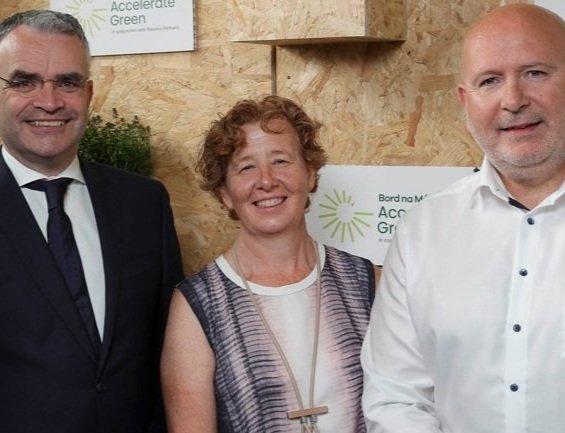The Circular Economy and Construction Waste: Are You Aware of Your Responsibilities?
The Circular Economy and Miscellaneous Provisions Act 2022 has brought significant changes to how the construction industry in Ireland must manage its waste. Despite this, many in the sector seem unaware of the substantial legal responsibilities now placed upon them. If you are a contractor, subcontractor, or part of the broader construction industry, it’s time to take note: you are responsible for the waste generated from your projects, and where it ends up, and failure to comply could have serious consequences.
7 Reasons to Shift Away from Paper-Based Material Management in the Construction Sector
Paper-based systems are inherently prone to human error. Misplaced orders, lost documents, and data entry errors can significantly impact project timelines and budgets. Digital material management systems, however, offer real-time data entry and retrieval, reducing errors and increasing accuracy. For example, using smart tech waste materials can be tracked accurately from site pick up to waste facility. This not only minimises the risk of issues but also streamlines operations, making the management and audit process 100's more efficient.
Hub360 – Supporting Sustainable Business Practices to lower carbon emissions
The logistics industry is one of Europe's biggest, generating in excess of €900 bn each year and employing more than 7 million workers. It also features the most labour-intensive processes that have traditionally focused heavily on legacy paper-based systems, meaning that it's an industry that's open to disruption by options that offer improved efficiency.
Why Prioritising Digital Solutions for Construction & Demolition Waste Management is Essential?
Ireland’s updated Waste Management guidelines for Construction & Demolition Projects 2021 prioritises the adoption of a circular economy, emphasising reuse and recycling over disposal. This means tracking, tracing and auditing of the movement of Construction materials where the developer must “maintain records for all resource material which is used on site and leaves the site, either for reuse, recycling, energy recovery, backfilling or other recovery or disposal on third party sites” as laid out in the EPA Best Practice Guideline 2021 - for the preparation of resource & waste management plans for construction & demolition projects.
Is Enough Happening in Ireland Today to Reduce CO₂ Emissions from Heavy-Duty Vehicles ?
Hub360 were delighted that Dara Calleary, Minister of State for Trade Promotion, Digital, and Company Regulation was present, as it was suggestion that the CO₂ Emissions from Heavy-Duty Vehicles was something that would be dealt with at some future time.
Reduce HGVs Emissions Now & Save Money
Hub360 were invited to speak at Irelands sustainability conference this summer and the message we focused on getting out there at the conference was that organisations can optimise the use of HGVs to achieve both emission reduction and cost savings now in 2023, and to do this it’s simply not rocket science, its straightforward yet highly effective solution: organisations should wholeheartedly embrace change and harness technology to maximise the efficiency of their Heavy Goods Vehicles (HGVs).
Hub 360 at the Manufacturing & Supply Chain Conference & Exhibition in Glasgow Scotland
Check out John & Ciaran visiting Glasgow to talk about how the HUB360 platform not only works to reduce delivery related Carbon Emissions but also provides, via one one single platform, the tools to completely transform how you manage load planning, grouping & route optimisation.
HUB360: Enabling Manufacturers Companies to Achieve Their Sustainability Goals
The freight industry truly is on the cusp of transformation. Advancements in efficiency powered by AI digitization are altering the landscape while also resetting the bar with regard to what's possible in terms of operational performance and carbon neutrality.








